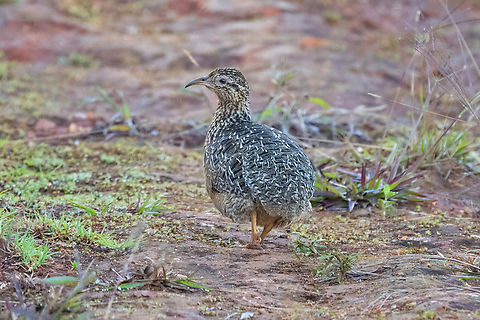
Appearance
The curve-billed tinamou is approximately 28 cm in length. Its upper parts are dark brown streaked with white and spotted with black. Its breast is rufous and spotted with white, its belly is tawny-buff and its crown is black, the sides of its head, and its throat and foreneck are white. Finally, its legs are brown in color.Naming
"Crypturellus" is formed from three Latin or Greek words. "kruptos" meaning covered or hidden, "oura" meaning tail, and "ellus" meaning diminutive. Therefore, "Crypturellus" means small hidden tail.The curve-billed tinamou has two subspecies as follows:⤷ "N. c. curvirostris", the nominate race, occurs in the Andes of central and southern Ecuador and northern Peru
⤷ "N. c. peruviana" occurs in the Andes of northern and central Peru; eastern Piura, Cajamarca, Amazonas, western San Martín, La Libertad, Ancash, and Huánuco Regions
Status
The IUCN list this species as Least Concern, with an occurrence range of 30,000 km2.Behavior
Like other tinamous, the curve-billed tinamou eats fruit off the ground or low-lying bushes. They also eat small amounts of invertebrates, flower buds, tender leaves, seeds, and roots. The male incubates the eggs which may come from as many as 4 different females, and then will raise them until they are ready to be on their own, usually 2–3 weeks. The nest is located on the ground in dense brush or between raised root buttresses.Habitat
This tinamou lives in the Andes of central and southern Colombia, through Ecuador and northern and central Peru. It prefers grassland at 2,800 to 3,700 m in altitude. It also can be found in high-altitude shrubland and pasture.References:
Some text fragments are auto parsed from Wikipedia.